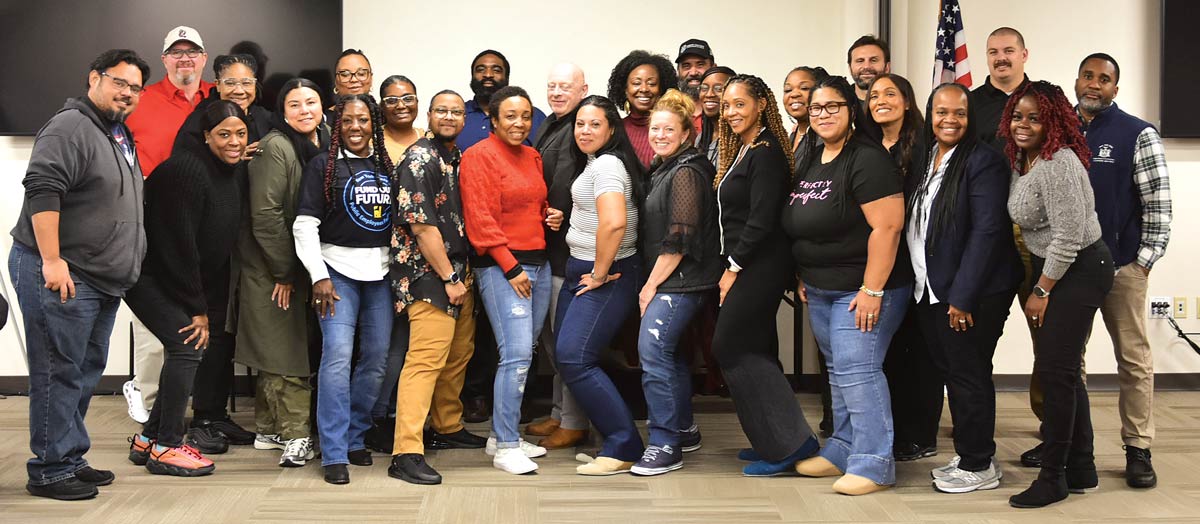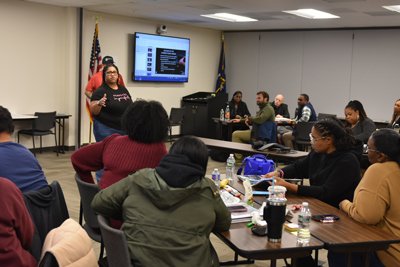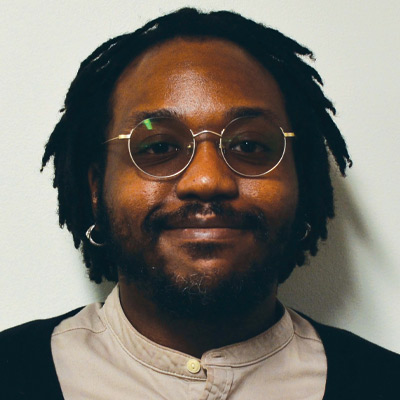
 January 9, 2025 — PEF parole officers have a stressful and demanding job. That’s why officers Vikky Urena and Faith Cochran created a training program with Desert Waters Correctional Outreach to help them practice mental health wellness.
January 9, 2025 — PEF parole officers have a stressful and demanding job. That’s why officers Vikky Urena and Faith Cochran created a training program with Desert Waters Correctional Outreach to help them practice mental health wellness.
The work started two years ago, when Urena and Cochran were introduced to the “Improving the Well Being of Corrections Professionals” (IWCP) course. They experienced firsthand the benefits and got to work figuring out how to deliver them to their fellow members.
With the help of PEF Health & Safety and other members within PEF Division 236 (Parole), they were able to get a program funded and ready by November 2024.
The program, much like the original IWCP course, was designed not only to teach members valuable ways to navigate their stress while on and off duty, but also to keep those practices in mind and teach others the same skills. Additionally, the original course only applied to corrections staff. Division 236 made sure to include other staff members in re-entry and senior positions as well.
The week-long training was held November 18-22, 2024, at PEF headquarters outside Albany. Twenty-four members attended and they were assisted by two trainers from Desert Waters. They were challenged to confront emotional truths about their work, while also working with others to find ways to channel those emotions into action, healing and growth. Members shared stories of toxic work environments, troubling mental health, and more.
“The first day was very emotional. I came in feeling like a Debbie Downer, or like I didn’t have any hope,” said Takenya Benbow, a Senior Parole Officer from New York City. “But by the end of it I felt encouraged. It was good to be with my peers who knew and felt the same things I was going through, and to be able to process that with my peers was great.”

“Going through the fatigue part of the training where it shows us how we’ve changed from the day we graduated from the academy to now, with some of us having 17 or 18 years of experience under us, it can be heart wrenching,” said Urena, who works out of the Brooklyn parole office. “It makes you wonder if you can possibly do another 30 years? And for me, since I came into this work later in my career, can I do it for even another 10?”
“My anxiety was high already for this, since I wanted to make sure it went well. But then, to also go into the content, my anxiety almost felt doubled,” said Cochran, a parole revocation specialist out of New Rochelle, N.Y. “We tried to pick the right people for this, and I feel that we absolutely did that.”
Gina Lopez, the council leader of PEF Division 236 and a parole officer based in Rochester, echoed the sentiments of Urena and Cochran, but added how important it was to demonstrate to both the union and management that training like this really works.
“Sometimes you have push back and naysayers who are only concerned about how much money is being spent,” said Lopez. “Ultimately, I think not only does it work, but it also really empowers people. We’re doing what it takes to combat our own issues while also helping to retain our workforce and give ourselves a leg up.”
Urena, Cochran and Lopez said that they were glad that the members who attended the training felt empowered and validated. They are all hopeful that members who participated will utilize what they learned and keep finding new ways of coping and relief.
Still, the work is not done. Members who attended the inaugural training will go on to train others, and will keep in touch with Urena, Cochran and Lopez, as well as the trainers from Desert Waters, in order to stay up-to-date on training methods and materials.
“This is truly the beginning,” said Cochran. “We’ll go on to have a coaching session and get certified and we will continue to work on the logistics of rolling out the training to more people.”
For Urena, Cochran, Lopez and others working hard at DOCCS, the goal is wellness in all its forms. They want management, and even the governor, to hear the message they’re sending with this work.
“We’re much more than just what we do for a living and our wellness matters,” said Cochran.
“It is a misconception that we as officers do not have anything to be fearful or sad about,” said Lopez. “When a parolee is impacted or we have to take care of them, we lose time with our families and we need to take care of ourselves, too.”
“We’re more than our salary grades and our titles,” said Urena. “We’re poets and bakers and small business owners. Big brothers and sisters. Daughters, mentors. We want people to see us as human too. We look like everybody in the community that we serve.”

